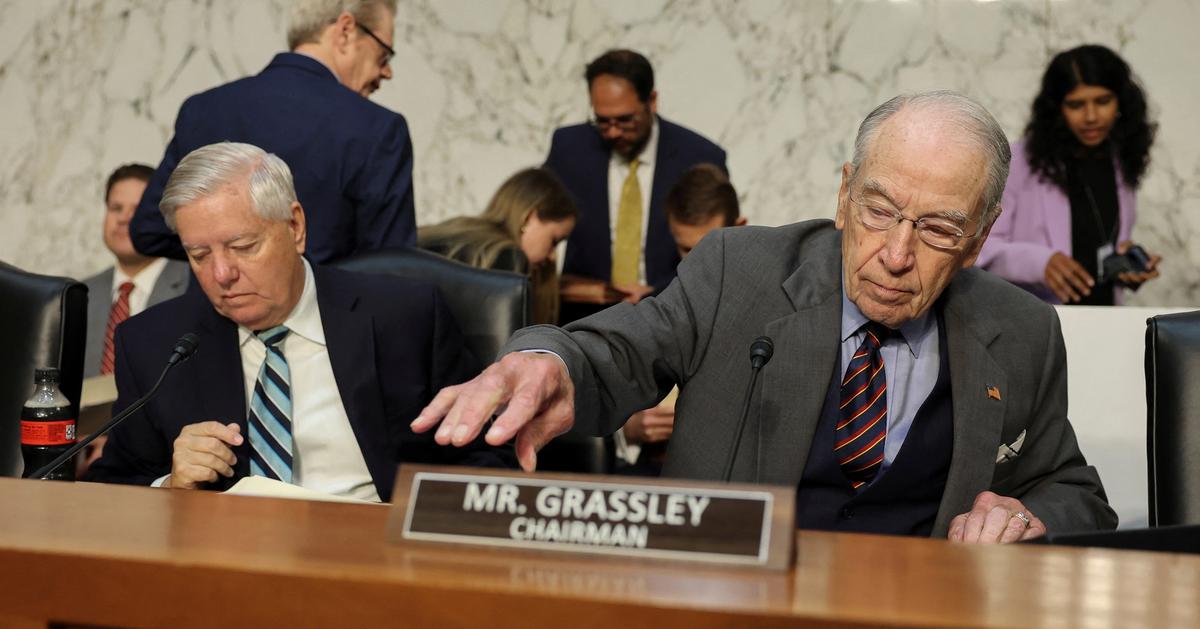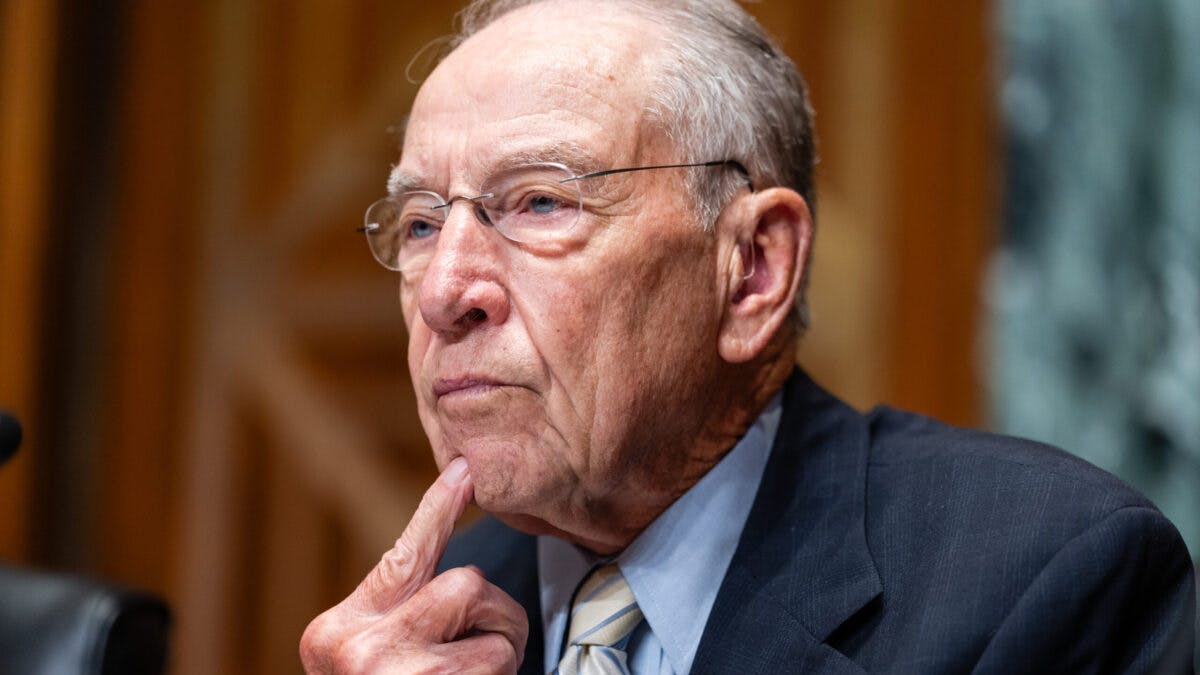Trump Pressures Senator Grassley Over Senate Blue Slip Tradition
President Trump pressures Senator Grassley to end the Senate's blue slip tradition, a practice allowing senators to block judicial nominees, sparking internal Republican friction.
Subscribe to unlock this story
We really don't like cutting you off, but you've reached your monthly limit. At just $5/month, subscriptions are how we keep this project going. Start your free 7-day trial today!
Get StartedHave an account? Sign in
Overview
- President Trump publicly urged Senator Grassley to scrap the Senate's blue slip tradition for judicial nominations, frustrated by delays in confirming his appointees, including U.S. attorneys.
- Senator Grassley expressed offense and disappointment at Trump's pressure to abandon the bipartisan blue slip practice, which affects district judges and U.S. attorneys.
- The blue slip tradition, dating back to the early 1900s, allows senators to block federal judicial and law enforcement nominees in their home states by withholding approval.
- Despite Trump's opposition, Senate Republicans, led by Grassley, largely support maintaining the blue slip tradition for judicial nominations, upholding Senate precedent.
- Senate Majority Leader John Thune rejected Trump's call to end the tradition, highlighting that both parties, including Senators Booker and Kim, have utilized blue slips to block nominees.
Report issue

Read both sides in 5 minutes each day
Analysis
Center-leaning sources frame this story by emphasizing President Trump's intense frustration and the confrontational nature of his actions. They use strong descriptive language to characterize his "unusual attack" on Senator Grassley as driven by being "incensed" and "irked" over specific nominee blockages. The narrative highlights the emotional impact on Grassley and the political capital involved.
Articles (7)
Center (1)
FAQ
The Senate's blue slip tradition is a practice where home-state senators receive a blue piece of paper to express support or opposition to a federal judicial nominee from their state. The tradition, dating back over a century, allows these senators to block or delay judicial nominations by withholding the blue slip, effectively giving them veto power over nominees and encouraging bipartisan consultation between the White House and senators.
President Trump pressured Senator Grassley to abandon the blue slip tradition because he was frustrated with delays in confirming his judicial appointees, including U.S. attorneys, caused by home-state senators blocking nominees through the blue slip process.
Senator Grassley expressed offense and disappointment at President Trump's pressure to eliminate the bipartisan blue slip practice. He and many Senate Republicans continue to support maintaining the tradition to uphold Senate precedent and the advice and consent role of home-state senators.
Yes, both Republican and Democratic senators have historically utilized and supported the blue slip tradition. Senate Majority Leader John Thune rejected President Trump's call to end the tradition, noting that senators from both parties, including Democrats like Senators Booker and Kim, use blue slips to block nominees.
The blue slip policy has evolved over time with varied enforcement depending on Judiciary Committee chairmen. In 1989, as Judiciary Committee Chairman, then-Senator Joe Biden formalized the process by stating that one negative blue slip was a significant factor but would not always block a nominee. However, if both home-state senators opposed a nominee, the committee would take no action. The policy has been maintained with some modifications but remains a key part of Senate advice and consent.
History
- This story does not have any previous versions.





